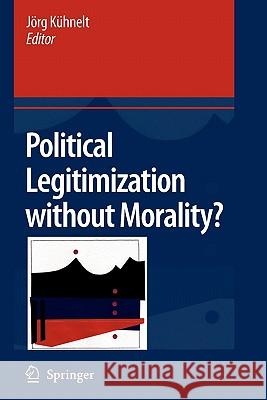Political Legitimization Without Morality? » książka
Political Legitimization Without Morality?
ISBN-13: 9789048179176 / Angielski / Miękka / 2010 / 208 str.
Within their territories, states claim to be the only authority to determine the law and to use coercive power to punish those who act illegally. Both claims are considered to be acceptable, provided a state acts in accordance with the framework of a legitimate constitution. However, the task of specifying the properties of a legitimate constitution becomes especially problematic within contemporary pluralistic societies. The authors in the present volume agree that, in this context, unconstrained reference to morality is hardly suitable. They propose new arguments within the spectrum marked by typical political and rational accounts of legitimacy. In the first section, the papers propose different ideas for the role that morality could or should still play, mainly by specifying political values which are less contentious due to a stronger limitation in their scope. In the second section, starting from rational accounts of legitimacy, the authors try to integrate at least some of the partially conflicting moral values held by individuals in contemporary societies. However, the limited role of normative premises in both attempts provokes the criticism that only the threat of legal sanctions remains to motivate citizens to keep the law. Addressing this criticism, the papers in the third section examine different alternatives which are presumed to support the stability of a legitimate state.











